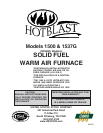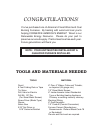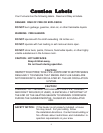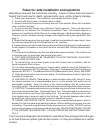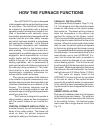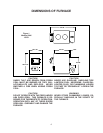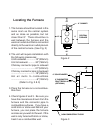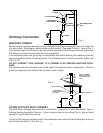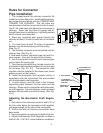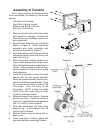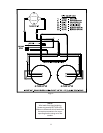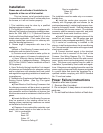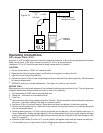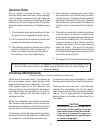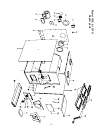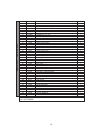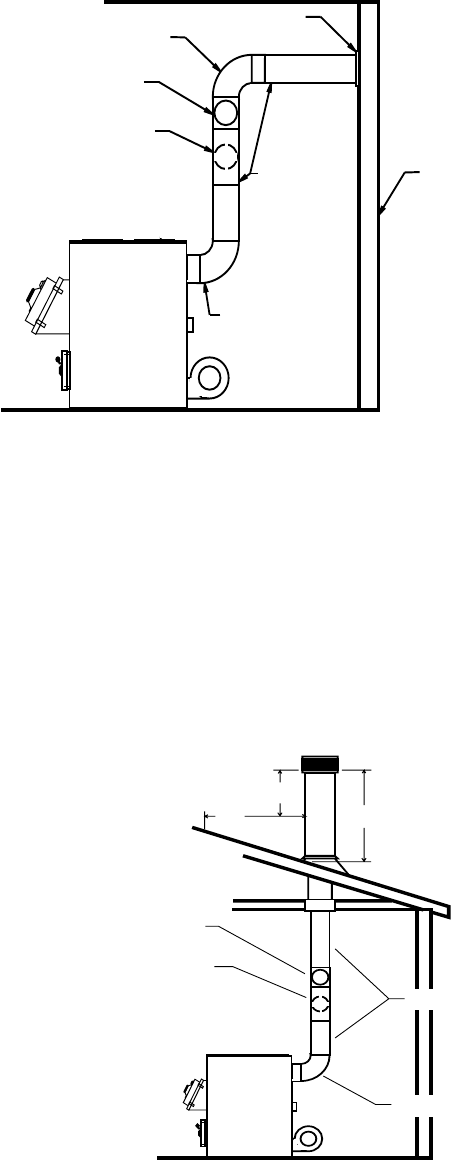
8
10'
2' MIN.
3' MIN.
6" CHIMNEY CONNECTOR
6" ELBOW
6" SOLID DAMPER
6" BAROMETRIC
DRAFT REGULATOR
(OPTIONAL)
REFER TO CHIMNEY
MANUFACTURER'S
INSTRUCTIONS AND
PARTS.
Chimney Connection
Fig. 4
MASONRY CHIMNEY
Before using an existing masonry chimney, clean the chimney and inspect the flue liner to be sure
it is safe to use. Make repairs before attaching the furnace. See page 4, item 5. Look at Fig. 4.
The connector pipe and fittings you will need to connect directly to a masonry chimney are shown.
The chimney connection should be as short as possible.
If the connector pipe must go through a combustible wall before entering the masonry chimney,
consult a qualified mason or chimney dealer. The installation must conform to local fire codes, and
N.F.P.A. 211.
DO NOT CONNECT THIS FURNACE TO A CHIMNEY FLUE SERVING ANOTHER APPLI-
ANCE.
The chimney used for a furnace must not be used to ventilate the cellar or basement. If there is
a cleanout opening at the base of the chimney, close it tightly.
Fig. 5
LISTED FACTORY BUILT CHIMNEY
Carefully follow chimney manufacturer's instructions. Use only a Listed Residential Type or
Building Heating Appliance Chimney. If your chimney starts at the ceiling (Fig. 5), you will need
enough 6" pipe to reach the ceiling.
The top of the chimney must be at least 3 feet above the roof and be at least 2 feet higher than any
point of the roof within 10 feet (Fig. 5).
6" SOLID DAMPER
6" BAROMETRIC
DRAFT REGULATOR
(OPTIONAL)
THIMBLE
6" ELBOW
6" CHIMNEY
CONNECTOR
6" ELBOW
NON-COMBUSTIBLE
WALL



